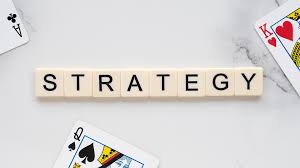
Do You Need To Introduce Private Label Products In Your Store?
Amazon, the monolithic e-commerce store which has virtually dominated the USA and is also threatening to dominate the global e-commerce industry has for some time already, profitably introduced its own private label products.
And this is not only troubling the sellers on its platform but the US government as well. Many fear that one day, everyone in the US and most probably other countries would exclusively buy Amazon made products only.
For example, Amazon earned US$ 232 billion from its private label sales in 2018. This accounts for only 1% of the company’s total sales but as you can see US$ 232 billion is not small change.
This highlights how profitable private label products can be to a store. If the giant stores like Amazon, Walmart are doing it, then it must be very profitable. Otherwise, these giant stores wouldn’t have even bothered to give it a thought.
JUST WHAT EXACTLY IS A “PRIVATE LABEL” PRODUCT?
 According to Oxford Languages, a private label “denotes a product manufactured or packaged for sale under the name of the retailer rather than that of the manufacturer.” For example, Amazon sells its own private label battery products.
According to Oxford Languages, a private label “denotes a product manufactured or packaged for sale under the name of the retailer rather than that of the manufacturer.” For example, Amazon sells its own private label battery products.
This means that Amazon doesn’t manufacture the batteries themselves but rather, they commission a manufacturer to manufacture the batteries for them. All that Amazon does is stamp their label on these batteries.
Even the stamping of Amazon’s labels to their private label batteries can also be done by the manufacturer. Another way to look at it is this way: Amazon buys batteries from a manufacturer and stamps their own label in them with the agreement of the battery manufacturer.
Of course, its not as simple as this, Amazon also needs to ensure that their product quality and manufacturing standards are being followed by the manufacturers of their private label products.
This is because any quality control or manufacturing problems that Amazon’s private label products incur will contribute to a negative image not only to the private label’s manufacturer but to Amazon itself.
WHY ADOPTING PRIVATE LABEL PRODUCTS IS A GOOD STRATEGY
 The answer to this is simple, the manufacturer holds the manufacturing information while the store holds the sales information. A product might be of the highest quality but if no one buys it, then its a failure financially.
The answer to this is simple, the manufacturer holds the manufacturing information while the store holds the sales information. A product might be of the highest quality but if no one buys it, then its a failure financially.
And this is where the store holds the upper hand to the manufacturer. They know which products sell and why. They know all about the competing product’s situation: which ones are selling well, those with good sales and those with dismal to no sales.
Stores also know the buying behavior of the buyers. For example, the store knows which color of their clothes or bags sell well and also which designs. A manufacturer doesn’t know this. All they know are the manufacturing information of their own products.
A store that wants to earn more by selling near copies of the products in their stores which sell very well would definitely know how to do it. This is because they have the information right in their very own hands.
And as you might have noticed in your favorite e-commerce or even local supermarket, a lot of stores have no qualms in doing this though it might seem unfair to the manufacturers/suppliers of the products in their stores.
IS IT ETHICAL OR EVEN LEGAL?
 But is it legal? Doing a cursory check online would show that the practice is legal. The website bestfullfil.com gave the top answer: “Private labeling is legal because a private labeling firm does not underhandedly try to pass off a manufacturer's products as their own.”
But is it legal? Doing a cursory check online would show that the practice is legal. The website bestfullfil.com gave the top answer: “Private labeling is legal because a private labeling firm does not underhandedly try to pass off a manufacturer's products as their own.”
Instead, they develop the product and pay a manufacturer to produce it. The entire process is done above board and does not violate any commercial or intellectual property laws.
As you can see, you won’t have any trouble with the law if you introduce private label products in your store as long as you follow the legal technicalities of private label laws like ensuring that the manufacturer of your private label products agree that they would lose naming rights.
But is it ethical? It depends upon each one’s individual opinions. For me at least, if you are transparent to your private label product buyers as to how and who manufactures them, you should have a clear conscience.
BUT I’M NOT A MONOLITHIC STORE, I’M ONLY A SMALL ONE
 You might complain that private labelling as a strategy only works for giant stores like Amazon or Walmart. But you can apply the same strategy even if you only have a small store. For example, you can open up a restaurant or food shop without you even cooking anything.
You might complain that private labelling as a strategy only works for giant stores like Amazon or Walmart. But you can apply the same strategy even if you only have a small store. For example, you can open up a restaurant or food shop without you even cooking anything.
You can ask other cooks/food manufacturers to cook/manufacture the food you would sell in your restaurant or food shop and just stamp your own label in these foods once they are in your restaurant or food shop.
Of course, you begin by selling different foods in your restaurant or food shop from many food suppliers. As time goes by, you would know which types of food in your restaurant or food shop sells well.
What you can do next is to find someone who would cook/manufacture the same food at a cheaper price as against your current food supplier. You gradually introduce the cheaper priced food while at the same time phasing out the original supplier of your food.
Of course, the original supplier of the food won’t like it. It is just the nature of this business strategy. But you have to remember that business is all about competition and even suppliers and stores compete with each other.
REMOVES MANUFACTURING PROBLEMS
 A big advantage of this strategy is that you don’t have to setup a manufacturing facility and buy raw materials especially if you cannot find the capital to build one. You let the manufacturer of your product worry about it.
A big advantage of this strategy is that you don’t have to setup a manufacturing facility and buy raw materials especially if you cannot find the capital to build one. You let the manufacturer of your product worry about it.
You don’t have to worry about excess unsold inventories either because its the manufacturer’s responsibility to worry about excess inventories. Its more than likely that your manufacturer is not only supplying you but your competitors as well, but this is just the reality.
What you should concentrate on is just selling your private label products and ensure that your manufacturer is following your quality and manufacturing guidelines. This is all you need to worry.
It is also possible that you have more than one manufacturer just to ensure that your supply chain doesn’t have problems just in case one of your manufacturers decide to stop supplying you with your private label products.
CONCLUSION
 You should introduce private label products in your store no matter how big or small your store is. If mega stores like Amazon and Walmart are doing it, it must be a very profitable strategy to implement.
You should introduce private label products in your store no matter how big or small your store is. If mega stores like Amazon and Walmart are doing it, it must be a very profitable strategy to implement.
You don’t have to worry about manufacturing concerns, all that you need to ensure is that the manufacturer of your private label products follow your quality and manufacturing standards.
You might also like to read the article:

Selling Your Company’s Second Hand Products
IMARC Group, an industry reporting website, reports that global secondhand luxury goods market size is US$ 28.3 billion in 2021. They expect the market to reach US$ 47.1 Billion by 2027...